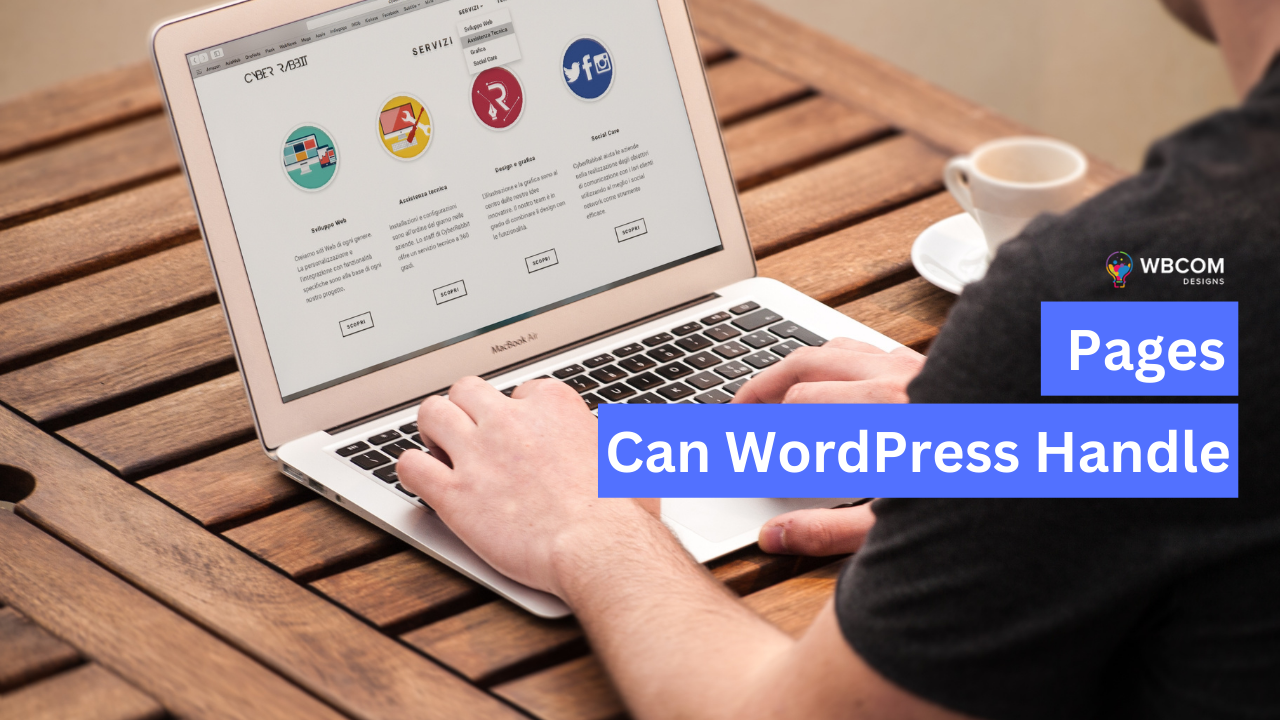WordPress is designed to handle a vast amount of pages and can easily support websites with hundreds or even thousands of pages. The Pages Can WordPress Handle largely depends on factors such as the hosting environment, server resources, and the complexity of the website’s design and content. In general, WordPress is optimized to handle large websites, and there is no hard limit on the number of pages that can be created. However, as the number of pages increases, it is essential to optimize the website’s design and content to ensure that it loads quickly and is easy to navigate. This includes optimizing images, reducing unnecessary plugins and scripts, and implementing caching and compression techniques. It’s important to note that the performance of a WordPress site can be affected by various factors, including the number of pages, traffic volume, and the hosting environment. Therefore, it’s recommended to use a high-quality hosting provider, regularly monitor website performance, and optimize the website’s design and content to ensure that it can handle a large number of pages without compromising on performance or security.

Table of Contents
TogglePages can wordpress handle
WordPress is a highly scalable and flexible platform that can handle a virtually unlimited number of pages. However, it’s important to keep in mind that the performance and functionality of a WordPress site can be affected by several factors, including:
1. Hosting environment- Pages Can WordPress Handle?

The quality of the hosting provider and the hosting environment can significantly impact a WordPress site’s performance and scalability. Shared hosting plans can be suitable for small websites, but larger websites with a vast number of pages may require more powerful hosting solutions such as dedicated servers or cloud hosting.
Also Read: Choose A Web Hosting Service For Your Marketplace – Full Guide
2. Server resources
The number of server resources available to a WordPress site, such as CPU, RAM, and disk space, can also affect its performance and scalability. Ensuring that there are enough server resources available to handle the website’s traffic and content is critical.
Also Read: Website Themes Affect The Performance of Your Site In Search Engines
3. Website design and content- Pages Can WordPress Handle?

The design and content of a website can also affect its performance and scalability. A website with a lot of large images, videos, or scripts can take longer to load, affecting the user experience and search engine optimization (SEO).
4. Caching and optimization
Implementing caching and optimization techniques, such as page caching, object caching, and database optimization, can significantly improve a WordPress site’s performance and scalability.
Conclusion
In summary, while WordPress can handle a vast number of pages, the performance and scalability of the site depend on various factors. It’s essential to optimize the website’s design and content, use a high-quality hosting provider, and implement caching and optimization techniques to ensure that the site can handle a large number of pages without compromising on performance or security.
Interesting Reads:
Scale Up Your Website: How Hosting Can Affect Your Website’s Scalability and How to Optimize It
How WordPress Themes Affect Visitors Perception Of Your Content







